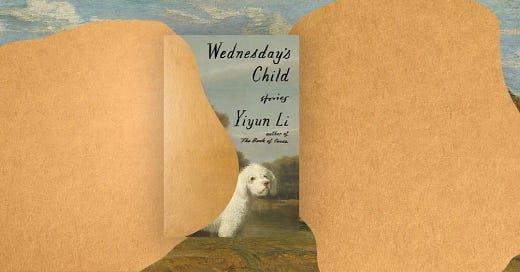The short story has a strange relationship to time, perhaps arising from its in-betweenness as a genre. Not quite a poem and not quite a novel, the story resembles both. Like poetry, the story condenses time. The form bends towards epiphanic experience and the crystallizing moment, those short stretches when life shimmers with revelation. And yet, like the novel, the story also gives time the chance to breathe. In a story by Alice Munro or Tessa Hadley, years, and not just moments, are dramatized. Memory opens a trapdoor to the past; we see the long arc of a life in its fullness. The story is, to borrow a figure from Shakespeare, a “liquid prisoner pent in walls of glass,” its temporality both fluid and constrained.
The first sentence in Yiyun Li’s latest story collection, Wednesday’s Child, describes temporal in-betweenness: “The difficulty with waiting, Rosalie thought, is that one can rarely wait in absolute stillness.” The book’s last sentence, which borrows language from the English mystic Julian of Norwich, likewise places us betwixt and between, moving from future to past tense before ending on the infinitive: “All will be well, all will be well, and every kind of thing shall be well, yet I could not even write a lying note to console my children.”
Keep reading with a 7-day free trial
Subscribe to Book Post to keep reading this post and get 7 days of free access to the full post archives.



